In the United States, many students head back to school in September. With continuing challenges in our communities, it’s critical to ensure that school communities are equipped to meet the social and emotional needs of young learners and their families.
At WKKF, we’ve long championed strategies to ensure that children have a healthy start and quality learning experiences. The following stories highlight what it takes to make that possible – including changing how students are welcomed into school buildings, equipping students with the tools to lead, engaging parents as mentors and continuing to build pipelines for more educators of color to be placed in classrooms and leadership positions. They also highlight the people behind the work, showing how the work of change is powerfully led by those directly impacted by inequitable systems.
Wisdom of the first educators. This piece explores how RISE-Colorado, a WKKF grantee, changed its practices for welcoming students back to school buildings in the Fall of 2020 after the first few months of the pandemic and protests related to the murder of a local young person by police. RISE convened parents, teachers and students to design a welcoming program, prioritizing social and emotional health. “We are all living through the pandemic of COVID and the pandemic of racism,” said Mia Robinson, an elementary school principal in Aurora, Colorado. “I knew we needed to start school differently.”
Brilliant children deserve a brilliant system. Building Blocks for Kids-Richmond (BBK-Richmond), part of a Bay Area coalition supported by WKKF, worked with Bay Area PLAN, and Coleman Advocates to take what they heard from community members and share it with those who hold positional power within education systems. As Xochitl Montano, previously a policy advocacy organizer with BBK-Richmond said, “Parents and youth are the experts of their lives. They have knowledge and experience. If you’re in a position of power, you should be taking it all in.”
Profound gentlemen: Presence makes a difference. The presence of Black men in elementary school classrooms has a significant, positive impact on the social-emotional and academic success of students, particularly Black boys. Yet, nationwide, only two percent of teachers in public schools are men of color. Profound Gentlemen, founded in Charlotte, North Carolina by Jason Terrell and Mario Jovan Shaw, works at both the personal and systems level to change that by connecting educators of color with peer support and professional development opportunities, while consulting with large school districts on how to create an atmosphere of belonging and advancement. Terrell says, “I talk to young Black men about their sense of purpose, about their vision for their own lives and their communities. Then, I talk about how becoming an educator can be a route for bringing their vision for their communities alive.”
Finding the calm. Diane Wolk-Rogers and her students lived through the horrific school shooting at Marjory Stoneman Douglas High School in Parkland, Florida on February 14, 2018, which claimed the lives of 17 people. Just two years later, some of those same students led the school district’s social-emotional response to the pandemic, hosting weekly livestreams on the Broward County Public Schools website. “When it’s time to rebuild I hope the adults will be the foot soldiers and the youth will be the generals. We can give them the tools to lead,” said Wolk-Rogers.
Love on every block: the power of moms. A few miles from downtown Chicago, Logan Square has been a hub of Mexican, Puerto Rican and Central American culture for generations. Since 1995, the Logan Square Neighborhood Association, recently renamed Palenque LSNA, has engaged Latina and Black mothers to challenge persistent equity gaps through the Parent Mentor Program. In 2011, LSNA partnered with the Southwest Organizing Project in Chicago to form the Parent Engagement Institute. The institute helps organizations around the state and country start Parent Mentor Programs. What started as a neighborhood program is now rooted in a network of more than 200 schools across Illinois, increasing individual attention for more than 40,000 students daily in their classrooms. “Parent mentors are superheroes without capes,” says Leticia Barrera, director of the Parent Mentor Program. “They are the ones who know everyone in the neighborhood, who know the struggles.”

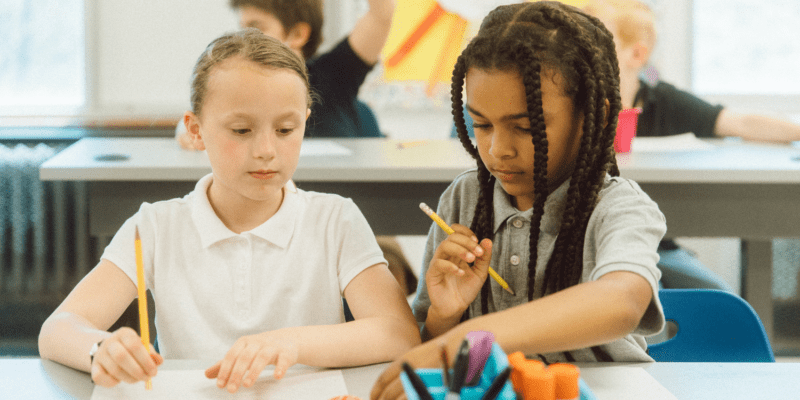
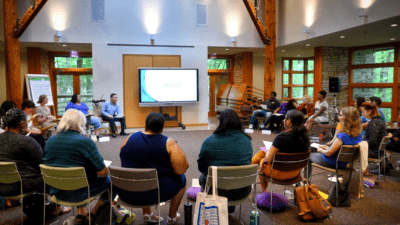
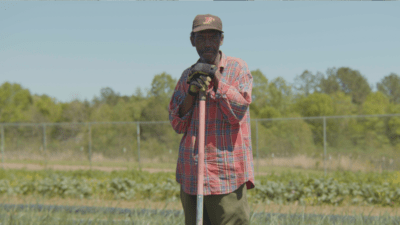
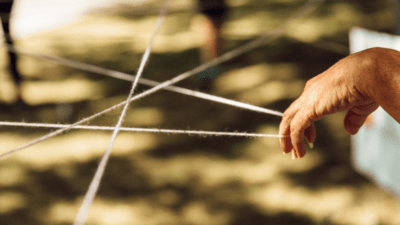
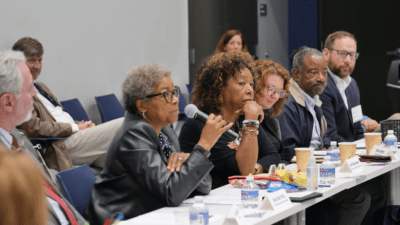


Comments